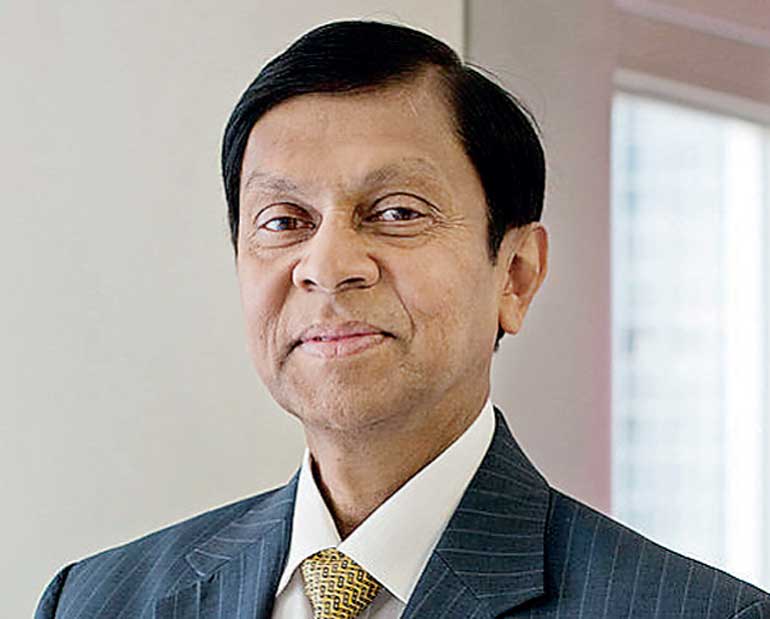Thursday Mar 05, 2026
Thursday Mar 05, 2026
Wednesday, 15 March 2017 00:00 - - {{hitsCtrl.values.hits}}
 By Ajith Nivard Cabraal
By Ajith Nivard Cabraal
My attention is drawn to the recent hollow accusation by the Finance Ministry that the public debt has keen managed “fraudulently” and that all Treasury bonds has been issued in violation of the law, during my term of office as Governor. I categorically refute this accusation as yet another in a series of bogus, unsubstantiated, and childish fabrications. I also assert that the Treasury bond issues during my term of office of nearly nine years have been made with the overall objective of minimising the cost of borrowing to the Government.
In the meantime, the Central Bank has already confirmed on 2 March, that all Treasury bond issues had been done in accordance with the applicable rules, regulations and laws via a transparent procedure. My assertion as well as that of the Central Bank are clearly borne out by the clean and unqualified reports of the Auditor General (AG) over the years, and in particular, the AG’s report dated 16 January 2017, which could be accessed from the AG’s website.
At the same time, it is my view that this type of vituperative allegation against the former administration’s economic team of the Finance Minister, Governor and Treasury Secretary has probably been made by the Finance Ministry under the guidance of the Finance Minister, due to the current administration’s deep sense of frustration and jealousy, as a result of the fact that they (the current administration) have fallen far short of the excellent economic results generated by the former team.
According to official economic data published after 2015, the previous administration transformed the 2005 $ 24 billion Sri Lankan economy to an $ 80 billion economy by 2014, while enhancing the GDP per capita from $ 1,242 to $ 3,853. Economic growth for the six years, 2009 to 2014, averaged an unprecedented 6.5% per annum. Inflation was controlled at mid-single digits for six years from 2008 to 2014. The debt situation as indicated by the Debt to GDP ratio which was dangerously high at 91% in 2005, was skilfully managed and reduced to 70% by 2014, even while a massive infrastructure development programme was implemented.
Foreign reserves increased from $ 2,735 million at end 2005, to $ 8,208 million by end 2014. The Balance of Payments (BOP) recorded a massive surplus of $ 1,369 million in 2014. From 2006 to 2014, the rupee was maintained at stable levels, with the average depreciation of the rupee during this period being the lowest-ever since the liberalisation of the economy in 1977. By end 2014, interest rates of all Government securities from three months to 30 years had stabilised between 5.5% and 9.5%. The country’s credit rating and economic outlook had improved significantly, and foreign investors invested confidently in Sri Lankan stocks and Government securities. Foreign Direct Investment (FDI) recorded significant growth and reached $ 1,616 million in 2014, its highest-ever in history.
Overall, the economy progressed smoothly through the severe global economic, financial, oil and food crises, as well as across the major terrorist conflict and a possible bank failure. As a consequence, external and internal shocks did not penetrate into the economy, and people did not suffer any adverse effects of these mega challenges.
In stark contrast, under the current administration, economic growth has been woefully weak, and inflation has started to rise. The debt to GDP ratio has escalated sharply to 76% by end 2015, and is likely to exceed 82% at the end of 2016, according to analysts. Infrastructure development has been minimal. Foreign reserves have plummeted to $ 5,453 million by end January 2017. The Rupee is depreciating rapidly, while the 2015 BOP deficit of $ 1,489 million was the worst-ever in the country’s history. Interest rates have almost doubled in the last two years, adding a massive burden to the Government finances.
Foreign investors have pulled out more than $ 2.5 billion from Government securities, with the stampede to exit continuing. The country’s credit rating and outlook has been downgraded. FDI has crashed to around $ 400 million in 2016. The stock market is in a serious slide, and hundreds of billions of rupees has been wiped out from the market capitalisation. In the meantime, unbearable fiscal and other burdens are heaped on the people, the private sector and the economy almost daily, even while the economy is being rocked with mega scams, scandals and losses.
In this scenario, it is pathetic and incredible that the Yahapalanaya economic team is still concentrating on hurling false and malicious accusations at the past administration, without dealing with the burning issues of the economy. In that background, it is only a matter of time before the Sri Lankan economy plunges into the inevitable catastrophe of an unprecedented magnitude.